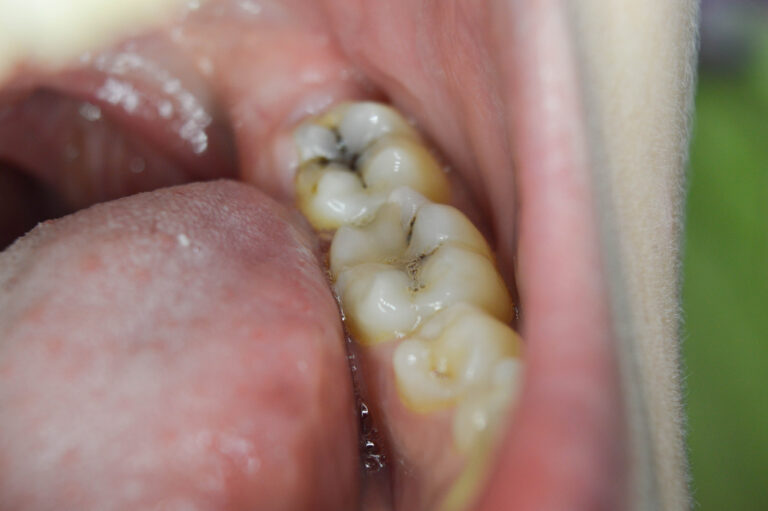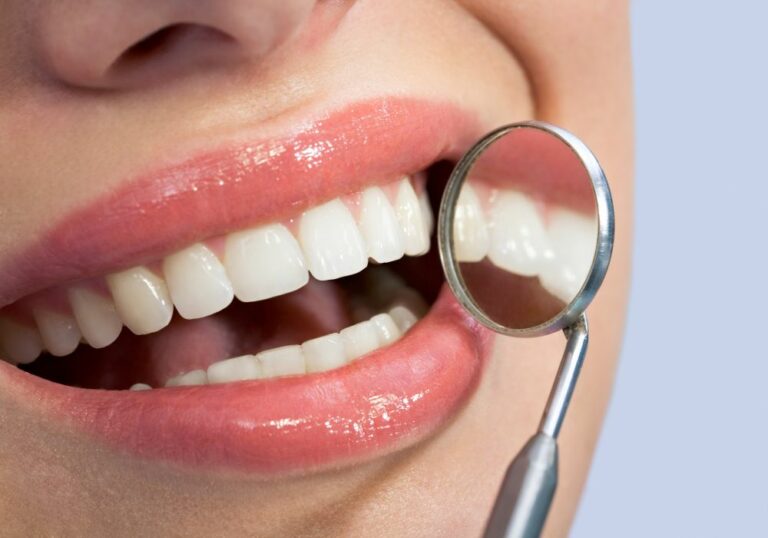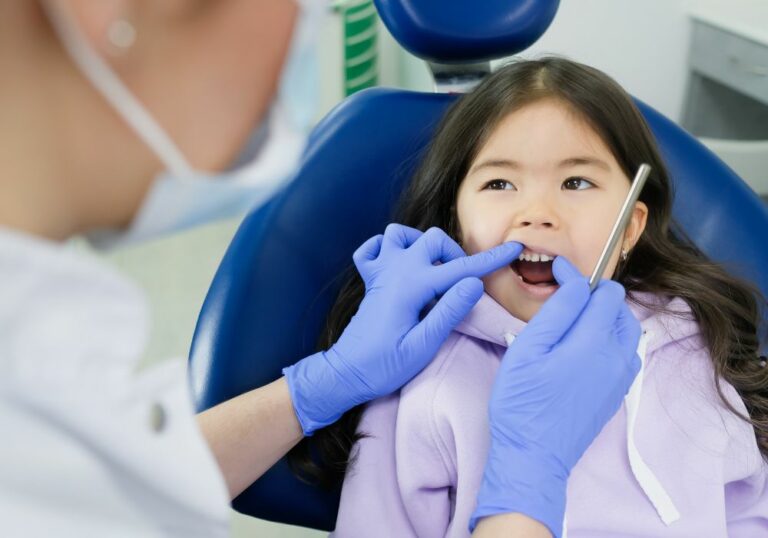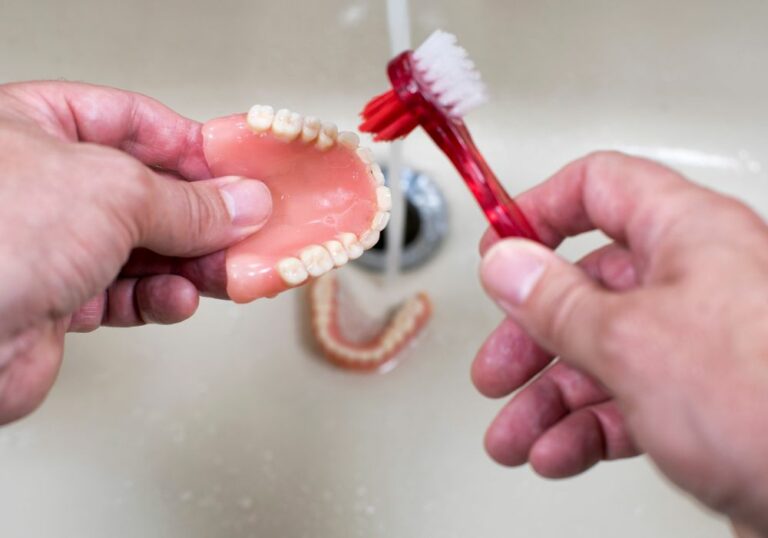Do you suffer from neck pain and headaches? If so, you may be surprised to learn that teeth grinding could be the culprit. Teeth grinding, also known as bruxism, is a common condition that affects many people, often without them even realizing it.
Bruxism can cause a range of symptoms, including flattened, fractured, or chipped teeth, as well as worn tooth enamel. In some cases, it can even lead to increased tooth pain or sensitivity. But did you know that it can also cause neck pain and headaches? While the exact reasons for this are not fully understood, it is thought that the tension and strain caused by grinding your teeth can affect the muscles and joints in your neck and head, leading to pain and discomfort.
Understanding Teeth Grinding

Teeth grinding, also known as bruxism, is a common condition that affects many people. It is the act of clenching or grinding your teeth, often unconsciously, during the day or while sleeping. If you grind your teeth regularly, it can lead to various dental problems, as well as neck pain and headaches.
Causes of Teeth Grinding
There is no single cause of teeth grinding, but it is often linked to stress and anxiety. Other possible causes include:
- Abnormal bite or misaligned teeth
- Sleep disorders such as sleep apnea
- Certain medications, such as antidepressants
- Excessive caffeine or alcohol consumption
- Smoking or using recreational drugs
Symptoms of Teeth Grinding
The symptoms of teeth grinding can vary from person to person. Some people may not even realize they are grinding their teeth until they experience dental problems or other symptoms. Common symptoms of teeth grinding include:
- Headaches, especially in the morning
- Neck pain and stiffness
- Jaw pain or soreness
- Tooth sensitivity or pain
- Earache or ringing in the ears
- Chipped or cracked teeth
- Worn-down tooth enamel
If you experience any of these symptoms, it is important to talk to your dentist or doctor. They can help diagnose the cause of your teeth grinding and recommend appropriate treatment options.
In the next section, we will discuss some of the treatment options available for teeth grinding.
Link Between Teeth Grinding and Neck Pain
Teeth grinding, also known as bruxism, is a condition where you clench, grind, or gnash your teeth. It can happen during the day or at night while you sleep. Sleep bruxism is considered a sleep-related movement disorder, and it can lead to headaches and neck pain.
When you grind your teeth, the muscles in your jaw and neck become tense and overworked, leading to discomfort and pain. The pain can be felt in the neck, shoulders, and even the ears. If you have a misaligned bite or missing teeth, you may be more prone to grinding your teeth, which can exacerbate neck pain.
Studies have shown that people who suffer from anxiety and stress are more likely to grind their teeth at night, leading to neck pain and headaches. Additionally, consuming caffeine, alcohol, tobacco, or illegal drugs can increase the likelihood of teeth grinding, which can lead to neck pain.
If you are experiencing neck pain and suspect that teeth grinding may be the cause, it is important to talk to your dentist. Your dentist can examine your teeth and jaw to determine if bruxism is the cause of your pain. They may recommend a mouthguard to protect your teeth from further damage and alleviate your neck pain.
In addition to using a mouthguard, there are several other things you can do to reduce teeth grinding and neck pain. These include:
- Reducing stress and anxiety through relaxation techniques such as meditation or yoga
- Limiting caffeine and alcohol consumption
- Avoiding chewing gum or other hard foods that can exacerbate teeth grinding
- Maintaining good posture to reduce tension in the neck and shoulders
By taking steps to reduce teeth grinding and neck pain, you can improve your overall quality of life and alleviate discomfort.
Connection Between Teeth Grinding and Headaches

Teeth grinding, also known as bruxism, is a common condition that affects many people. It occurs when you clench or grind your teeth, often during sleep. While mild bruxism may not require treatment, frequent and severe grinding can lead to jaw disorders, headaches, damaged teeth, and other problems.
One of the most common symptoms associated with bruxism is headaches. Grinding your teeth can put a lot of pressure on your jaw muscles, which can cause tension headaches. These headaches are often described as a dull ache that starts at the temples and radiates to the back of the head.
In addition to tension headaches, bruxism can also cause migraines. Migraines are severe headaches that are often accompanied by other symptoms, such as sensitivity to light and sound, nausea, and vomiting. While the exact cause of migraines is unknown, research has shown that jaw-clenching and teeth-grinding can trigger migraines in some people.
If you suffer from headaches or migraines, it’s important to talk to your dentist about the possibility of bruxism. Your dentist can examine your teeth and jaw to determine if you are grinding your teeth and recommend appropriate treatment.
In some cases, treating bruxism can help alleviate headaches and migraines. Treatment options may include wearing a mouthguard at night to protect your teeth, stress management techniques, and muscle relaxation exercises. Your dentist can help you determine the best course of treatment for your individual needs.
Mechanism of Pain Transmission
Grinding your teeth can cause neck pain and headaches due to the transmission of pain signals from the nerves in your jaw and neck to your brain. There are three types of nerve receptors in your jaw and neck that are involved in this process:
- Proprioceptors: These nerves transmit information about the position of your jaw joint.
- Mechanoreceptors: These nerves transmit information about the pressure on your jaw joint.
- Nociceptors: These nerves transmit pain signals.
When you grind your teeth, the pressure on your jaw joint activates the mechanoreceptors and nociceptors, which send signals to your brain. This can cause pain in your jaw, neck, and head.
In addition, grinding your teeth can cause muscle tension in your jaw and neck, which can also contribute to pain. When your muscles are tense, they can become sore and tender, leading to headaches and neck pain.
It’s important to note that not everyone who grinds their teeth will experience neck pain and headaches. The severity and frequency of grinding, as well as individual differences in pain perception, can all play a role in whether or not you experience these symptoms.
Overall, the mechanism of pain transmission from grinding your teeth to neck pain and headaches is complex and involves multiple factors. By understanding how this process works, you can take steps to prevent or alleviate these symptoms.
Diagnosis of Teeth Grinding Related Pains
If you are experiencing neck pain and headaches, your dentist or doctor may suspect that they are related to teeth grinding. To diagnose teeth grinding related pains, your dentist or doctor will perform a physical exam and ask you questions about your symptoms and lifestyle.
During the physical exam, your dentist or doctor will examine your teeth, jaw, and neck to look for signs of teeth grinding, such as worn or chipped teeth, jaw tenderness, and muscle tension in the neck and shoulders.
Your dentist or doctor may also ask you questions about your lifestyle, such as whether you consume caffeine or alcohol, smoke, or use drugs. They may also ask about your stress levels and whether you have any anxiety or depression.
In some cases, your dentist or doctor may recommend further tests to rule out other conditions that can cause similar symptoms, such as a sinus infection or a herniated disc in the neck.
If your dentist or doctor determines that your neck pain and headaches are related to teeth grinding, they may recommend a treatment plan that includes a combination of lifestyle changes, such as stress reduction techniques and avoiding caffeine and alcohol, and dental treatments, such as a mouthguard to protect your teeth from further damage.
Treatment Options

If you suffer from teeth grinding, neck pain, or headaches, there are various treatment options available to help alleviate your symptoms. Treatment options can be broadly divided into two categories: Medical Treatments and Lifestyle Changes.
Medical Treatments
If your teeth grinding is severe and causing significant pain or damage to your teeth, your dentist may recommend one or more of the following medical treatments:
- Mouthguards or splints: These are custom-made devices that fit over your teeth and help to protect them from damage caused by grinding or clenching.
- Medications: Muscle relaxants or anti-anxiety medications may be prescribed to help relax the muscles in your jaw and reduce teeth grinding.
- Botox injections: Injections of botulinum toxin (Botox) can help to relax the muscles in your jaw and reduce teeth grinding.
Lifestyle Changes
In addition to medical treatments, there are a number of lifestyle changes that you can make to help reduce teeth grinding and alleviate associated neck pain and headaches:
- Reduce stress: Stress is a common cause of teeth grinding, so finding ways to reduce stress in your life can help to alleviate your symptoms. Consider practicing relaxation techniques such as meditation or yoga.
- Avoid stimulating substances: Avoid consuming caffeine and alcohol, especially before bedtime, as they can exacerbate teeth grinding.
- Improve sleep habits: Getting enough sleep and maintaining a regular sleep schedule can help to reduce teeth grinding.
- Exercise regularly: Exercise can help to reduce stress and tension in your body, which can help to reduce teeth grinding.
- Jaw exercises: Performing jaw exercises, such as opening and closing your mouth or moving your jaw from side to side, can help to relax the muscles in your jaw and reduce teeth grinding.
In conclusion, there are various treatment options available for teeth grinding, neck pain, and headaches. Medical treatments such as mouthguards, medications, and Botox injections can help to alleviate symptoms, while lifestyle changes such as reducing stress, avoiding stimulating substances, improving sleep habits, exercising regularly, and performing jaw exercises can also be effective. Consult with your dentist or healthcare provider to determine the best treatment options for your individual needs.
Prevention Strategies
There are several prevention strategies you can implement to reduce the risk of teeth grinding, neck pain, and headaches. Here are some tips to help you prevent these issues:
1. Reduce Stress
Stress is a major contributor to teeth grinding, and reducing your stress levels can help alleviate the problem. Try relaxation techniques such as meditation, yoga, or deep breathing exercises to reduce stress.
2. Avoid Caffeine, Alcohol, and Tobacco
Caffeine, alcohol, and tobacco are all known to contribute to teeth grinding. Avoiding these substances can help reduce the frequency and severity of grinding.
3. Wear a Mouthguard
Wearing a mouthguard while you sleep can help protect your teeth from damage caused by grinding. Mouthguards can also help reduce muscle tension in the jaw, which can alleviate neck pain and headaches.
4. Practice Good Sleep Hygiene
Getting enough sleep and practicing good sleep hygiene can help reduce the frequency of teeth grinding. Make sure you are getting enough sleep each night, and avoid activities that can interfere with sleep such as using electronic devices before bedtime.
5. Seek Professional Treatment
If you are experiencing severe teeth grinding, neck pain, or headaches, it may be necessary to seek professional treatment. Your dentist or doctor can help diagnose the problem and recommend appropriate treatment options. Treatment may include medication, therapy, or other interventions to help reduce symptoms and prevent further damage.
Frequently Asked Questions
How can I prevent grinding my teeth at night without using a mouth guard?
There are a few things you can try to prevent grinding your teeth at night without using a mouth guard. First, try to reduce stress in your life, as stress is a common cause of teeth grinding. You can also try practicing relaxation techniques before bed, such as deep breathing or meditation. Additionally, avoid consuming caffeine and alcohol before bed, as they can exacerbate teeth grinding.
Can clenching my jaw cause headaches and neck pain?
Yes, clenching your jaw can cause headaches and neck pain. This is because the muscles in your jaw and neck can become tense and overworked, leading to pain and discomfort. If you are experiencing these symptoms, it is important to address the underlying cause of your jaw clenching, such as stress or anxiety.
What are some ways to relieve neck pain caused by bruxism?
There are several things you can try to relieve neck pain caused by bruxism. First, try applying a warm compress to the affected area for 15-20 minutes at a time, several times a day. You can also try gentle stretching exercises to help loosen up the muscles in your neck. Additionally, over-the-counter pain relievers such as ibuprofen or acetaminophen can help alleviate pain and discomfort.
Is it possible for teeth grinding to cause throat pain?
Yes, it is possible for teeth grinding to cause throat pain. This is because the muscles in your jaw and throat are closely connected, and tension in one area can lead to discomfort in the other. If you are experiencing throat pain along with teeth grinding, it is important to speak with your healthcare provider to rule out any underlying medical conditions.
How can I stop clenching my jaw while sleeping?
There are a few things you can try to stop clenching your jaw while sleeping. First, try to reduce stress in your life, as stress is a common cause of jaw clenching. You can also try practicing relaxation techniques before bed, such as deep breathing or meditation. Additionally, you can try sleeping on your back with a supportive pillow to help keep your jaw in a relaxed position.
What are some effective ways to treat headaches caused by bruxism?
There are several effective ways to treat headaches caused by bruxism. First, try applying a cold compress to the affected area for 15-20 minutes at a time, several times a day. You can also try over-the-counter pain relievers such as ibuprofen or acetaminophen. Additionally, if your headaches are severe or chronic, speak with your healthcare provider about other treatment options, such as prescription medications or physical therapy.






